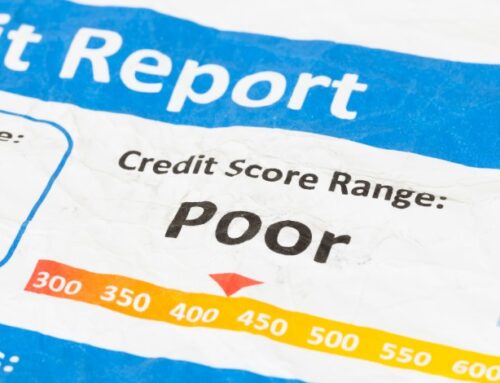Debt consolidation can be a powerful tool to regain control of your finances, but it’s crucial to understand the potential pitfalls and benefits.
In this post, we’ll explore what debt consolidation is, what your options are, the pros and cons of debt consolidation, and some other alternatives to get your debt under control.
What Is Debt Consolidation?
Debt consolidation involves combining multiple debts—such as credit card balances, medical bills, and personal loans—into one single account or loan. The goal is to simplify payments, reduce interest rates, and create a more manageable path toward becoming debt-free.
Types of Debt Consolidation Options
- Debt consolidation loans: These are personal loans offered by banks, credit unions, or online lenders specifically to pay off existing debts. You’ll make a single monthly payment to the new lender.
- Balance transfer credit cards: These cards allow you to transfer high-interest credit card balances to one card, often with a 0% introductory APR for a limited time.
- Home equity loans or HELOCs (home equity lines of credit): These are secured loans that use your home as collateral. They typically offer lower interest rates but come with the risk of losing your home if payments are not made.
- Debt management plans (DMPs): These plans, often arranged by nonprofit credit counseling agencies, consolidate debts into a structured repayment plan without taking out a new loan.
Debt consolidation can be a good fit for those struggling with high-interest debt and looking for a manageable repayment structure. However, it’s not a one-size-fits-all solution.
The Pros of Debt Consolidation
Debt consolidation offers several benefits that can ease financial stress and improve your financial health over time:
- Simplified payments: Managing multiple payments across various due dates can be overwhelming. With debt consolidation, you only need to track one payment per month, making it easier to stay on top of your finances.
- Lower interest rates: Many debt consolidation options, especially for those with good credit scores, come with lower interest rates than typical credit card rates. This means you’ll save money on interest over the life of the loan.
- Fixed repayment terms: Debt consolidation loans often have fixed repayment terms (for example, 3 to 5 years), so you’ll know exactly when your debt will be paid off, helping you stay motivated and on track.
- Improved credit score: Consolidation can help reduce your credit utilization ratio (the percentage of your available credit in use), which is a major factor in your credit score. Additionally, consistent on-time payments toward the consolidated debt can further boost your score.
- Peace of mind: The simplified structure and financial clarity of consolidation can reduce anxiety and help you feel more in control of your finances.
The Cons of Debt Consolidation
While debt consolidation offers many advantages, there are potential downsides to consider:
- Fees and costs: Some lenders charge upfront fees to process a loan, and many credit cards charge 3%-5% of the transferred balance. For home equity loans, closing costs can add up.
- No reduction in total debt: Debt consolidation doesn’t reduce the amount you owe; it merely restructures it. Without addressing the root cause of the debt, you could find yourself in the same financial situation again.
- Risk of losing collateral: Secured loans, such as home equity loans or HELOCs, put your assets at risk. Failure to repay can result in foreclosure or loss of property.
- Impact on credit score: Opening a new credit account can result in a temporary dip in your credit score due to a hard credit inquiry. Closing old accounts can shorten your credit history, another factor that impacts your credit score.
- Temptation to accumulate new debt: If spending habits don’t change, the newly available credit on paid-off accounts may lead to additional debt accumulation, compounding financial problems.
By weighing these pros and cons carefully, you can determine whether debt consolidation aligns with your financial goals and circumstances.
Better Ways to Consolidate Debt
When considering debt consolidation, some methods stand out as more effective and reliable than others. Here are approaches that can lead to success:
Focus on low-interest options
As noted before, balance transfer credit cards often come with 0% APR promotional periods lasting 6–18 months. If you can pay off your balance within this timeframe, you’ll save on interest entirely. Be cautious of balance transfer fees (typically 3%-5%) and make sure you don’t miss payments, which can end the promotional rate.
You can also consider loans from banks or credit unions, which often provide lower interest rates than online lenders. Fixed rates ensure your payments remain consistent over time.
Seek professional advice
Nonprofit credit counseling agencies offer free or low-cost consultations to help you understand your debt and evaluate your options. Many agencies can help set up a debt management plan (DMP) to consolidate your payments without taking on a new loan.
Evaluate lenders thoroughly
Choose a lender with a transparent fee structure, competitive interest rates, and strong customer reviews. Avoid lenders with overly aggressive sales tactics or unclear terms. Check the lender’s rating on the Better Business Bureau (BBB). Compare loan offers on reputable platforms like Bankrate or NerdWallet to find the best deal.
Prioritize debt with higher interest rates
When consolidating debt, focus on paying off higher-interest accounts first, as this strategy maximizes your savings.
Final Tips on Debt Consolidation
Debt consolidation can be a stepping stone toward financial stability, but success depends on careful planning and disciplined financial behavior. Here’s how to make the most of it:
- Assess your financial situation honestly: Take stock of your income, expenses, and debts. Understanding your finances is the first step in deciding if consolidation is right for you. Consider using a free debt repayment calculator to model different consolidation scenarios.
- Compare consolidation options thoroughly: Gather quotes from multiple lenders and compare interest rates, fees, repayment terms, and monthly payments. Don’t rush into a decision; the right consolidation option is worth the effort. Check debt consolidation calculators to see how you can save money.
- Commit to a realistic budget: A budget helps prevent overspending and ensures you have the funds to meet your new debt obligations. Follow the 50/30/20 rule: 50% of income for needs, 30% for wants, and 20% for savings or debt repayment.
- Educate yourself on financial literacy: Knowledge is power. Learn about personal finance strategies, such as creating an emergency fund, to avoid future debt pitfalls. Explore free resources like MyMoney.gov, National Foundation for Credit Counseling (NFCC).
Build Your Financial Future At AZCCU
Debt consolidation isn’t a magic fix—it’s a financial tool. By combining it with smarter financial habits, you can reduce your debt and build a stronger foundation for your financial future.
Arizona Central Credit Union can help you get your debt under control with personal loans and home equity loans. If you have any questions, contact us online or call (866) 264-6421.




